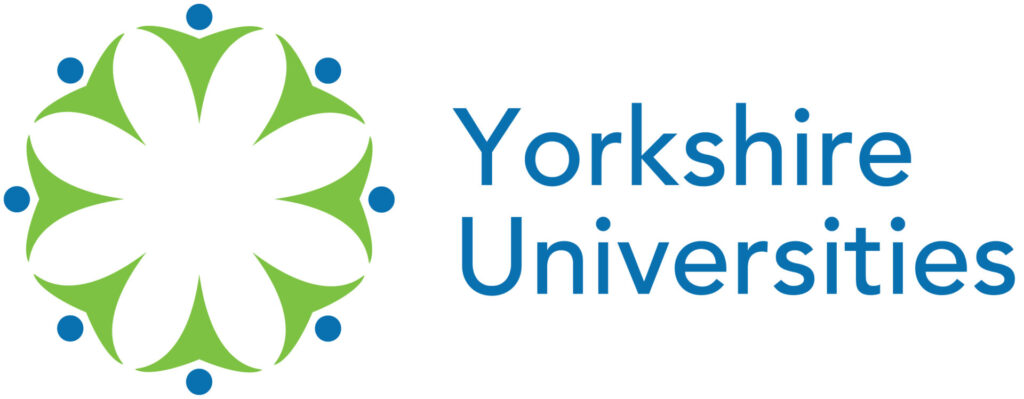

Context
Transforming and Activating Places (TAP) is a student Knowledge Exchange (KE) programme exclusively for widening participation (WP) students. Since its inception in 2020, it has recruited over 200 undergraduate students from underrepresented backgrounds studying arts and humanities or social sciences (SHAPE) subjects and paired them with 70 businesses, community, cultural and heritage organisations through enhanced work internships. TAP exists to address evidenced issues of equality of opportunity and diversity and inclusion within KE activities. It seeks, through co-production with students and partners, to identify barriers to KE experienced by underrepresented students and discover ‘what works’ for equitable, mutually beneficial KE internships and projects.
TAP student knowledge exchange partnerships are designed around the themes of place and placemaking, and students and partners collaborate to exchange and develop insights around these topics. This case study details one TAP project, a partnership between The Glass-House Community Led Design and TAP students Enrico and Vince that took place in London and Sheffield in summer 2022. For this project, Enrico and Vince both completed a 100 paid hour internship.
Action & approach
The purpose of this TAP student knowledge exchange project was to help The Glass-House develop and iterate their ‘gaming workshop’ model, a methodology that facilitates children and young people’s exploration of design through playfulness and creativity. In this case,
Vince and Enrico helped to plan and deliver a workshop they entitled State of Play, whose aim was to engage young minds in the co-design of their places. The workshop took place at the National Video Game Museum in Sheffield and facilitated a group of children to explore what they would include in outdoor spaces if they were involved in collaborative design using the digital tool Roblox Studio.
In preparation for the workshop, Vince and Enrico worked with The Glass-house team to evaluate relevant workshop models and research other programmes and initiatives that involve young people in placemaking and design. They then drafted a narrative for the session that followed their host organisation’s gaming-led design methodologies – including the principles of introducing children to architectural concepts and using gaming to empower children in conversations about the built environment. As Vince comments, the workshop ‘was an opportunity for the children and adults to collaborate and create a place together. It was interesting to see how their plans were then created in Roblox. The sharing session allowed us to have a peek at their processes and rationale for creating their builds.’
Impact
The legacy of the student’s contributions will stay with The Glass-House team, as hosts Sophia and Jake will continue to “muse and build on” the TAP students’ creativity. Personal and professional development of students is a clear priority from their perspective, as seeing them “grow in confidence” over the course of the internship was very satisfying. Support from the TAP programme, its sufficient infrastructure and a ‘spirit of reciprocity’ were all elements cited by The Glass-House as vital for enabling them to create a meaningful opportunity for the students.
Enrico echoes Sophia’s and Jake’s feedback in his own reflection, noting his newfound confidence and his part in knowledge exchange, describing how the TAP programme and the internship “helped me branch out more and be less worried about entering any new social situation because [..] I know that I have valuable knowledge that could benefit others.”
Similarly, Vince reflected on the value of experiential learning that take place in a project like this, explaining the importance of preparing for different eventualities and being flexible in workshops. Vince hopes to take this growth mindset forward into the future, in his words, a mindset that is “not afraid to experiment and make mistakes to find solutions.”
You can find more information about Vince & Enrico’s experiences on The Glass-House website.
Conclusions & advice
The TAP programme is currently in its third year and partnerships such as this, as best practice examples, form part of our evidence base for ‘what works’ for student knowledge exchange. In line with TAP’s identity as a community of learning, the principles identified here by Sophia, Jake, Enrico and Vince – particularly around exchange, mutuality, collaboration, confidence-building and care – continue to shape the programme’s foundations and direction.
“It’s not just a transaction, it’s an exchange, and there should be something in it for everyone involved, at every level.’
Sophia, project host
Overall, a central lesson of this project is that a meaningful student knowledge exchange experience needs sufficient resources, care and attention; if these things are forthcoming, the conditions are right for something transformational to happen for all involved.
The Glass-House are returning to the TAP programme this year as a partner organisation and working with two new TAP interns who will build on Vince’s and Enrico’s work to further explore and iterate gaming-led approaches to design with children. In this way, successful partnerships between universities and external partners look beyond the context of a single project and seek to build something more long-term that meets the needs of all collaborators.












